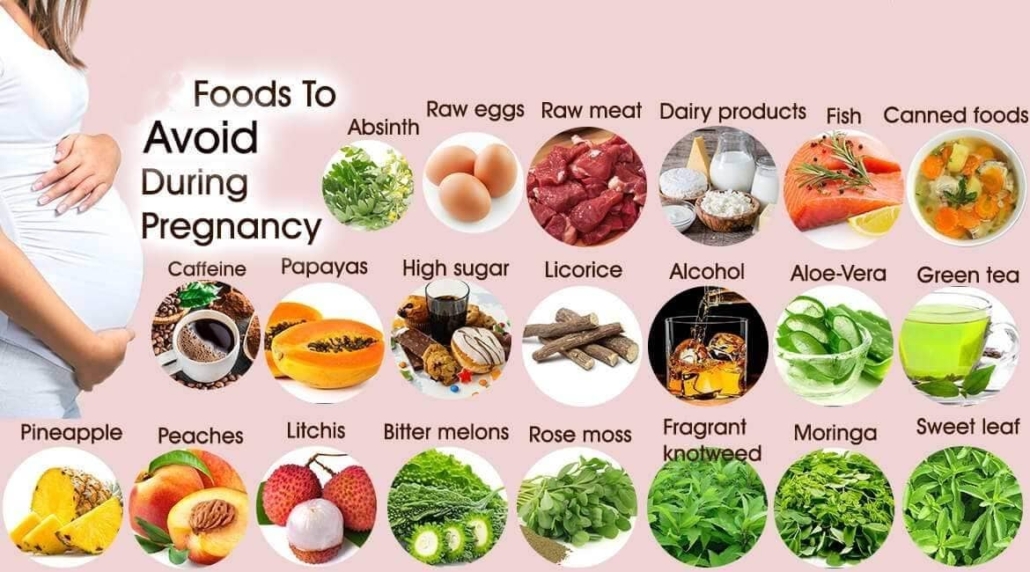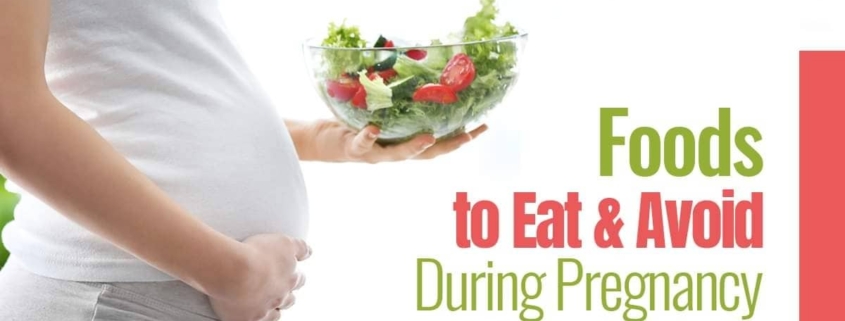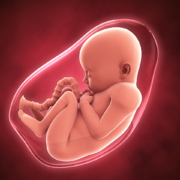Foods to Eat and Avoid During Pregnancy
Foods to Eat and Avoid During Pregnancy
It’s well known that a mother’s diet during pregnancy is very important to the health of her baby. Expecting mothers need to consume more vitamins, minerals, and other nutrients that are helpful for a fetus’s growth and development. However, there are also some foods pregnant women should avoid. There are some foods you should not eat when you’re pregnant because they might make you ill or harm your baby. Certain foods should only be consumed rarely, while others should be avoided completely. Make sure you know the important facts about which foods you should avoid or take extra care with when you’re pregnant. The best foods to eat are freshly cooked or freshly prepared food.

5 foods to eat during pregnancy
- Produce containing Vitamin C, like oranges, strawberries, bell peppers, and broccoli, support the baby’s growth and improves iron absorption. Adding in servings of green veggies is an efficient way to pack in vitamins and fend off constipation due to all that fiber. Vegetables rich diets linked means reduced risk of low birth weight.
- Foods that have iron, such as beans, lentils, green leafy vegetables, Lean beef, pork, chicken, and spinach are excellent sources of high-quality protein and all support the mother’s body in making more blood for both mom and baby. Red blood cells use iron as a part of hemoglobin, an essential mineral.
- Dairy products. During pregnancy, you need to consume extra protein and calcium to meet the needs of your growing little one. Dairy products like milk, cheese, and yogurt should be on the docket. Foods rich in calcium, including pasteurized dairy products (yogurt, cow’s milk, and hard cheeses) as well as almonds, broccoli, and garbanzo beans will help support the development of bones and teeth. Dairy products contain two types of high-quality protein: casein and whey. Dairy is the best dietary source of calcium and provides high amounts of phosphorus, B vitamins, magnesium, and zinc.
- Foods containing Omega-3 fatty acids (EHA and DHA) such as sardines, salmon, trout, and canned light tuna. Or choose a prenatal supplement with Omega-3s if you don’t like fish.
- Drinking plenty of water to stay hydrated supports the proper delivery of nutrients through the blood to the baby. Increasing your water intake may also help relieve constipation and reduce your risk of urinary tract infections, which are common during pregnancy. We all have to stay hydrated and pregnant especially. During pregnancy, blood volume increases by about 45 percent. General guidelines recommend that pregnant women drink about 80 ounces (2.3 liters) of water daily. But the amount you really need varies. Check with your doctor for a recommendation based on your specific needs.

5 foods to avoid during pregnancy
- Anything containing unpasteurized milk, however, is a no-no. These products could lead to foodborne illness. Avoid soft cheeses, such as brie, feta, and blue cheese, unless they are clearly labeled as being pasteurized or made with pasteurized milk. Also, avoid drinking unpasteurized juice.
- Any food in a dented can increases the risk for botulism, a foodborne illness that can cause neuromuscular deficits for expecting mothers.
- Avoid raw, undercooked, or contaminated seafood. Consuming raw seafood, like sushi or raw oysters, increases the risk of salmonella, a foodborne illness that can cause fever and nausea, vomiting, stomach cramping, and diarrhea for pregnant women, as well as intrauterine sepsis that can affect babies.
- Avoid seafood high in mercury. Fish with a high mercury content, such as swordfish, shark, orange roughy, marlin, and king mackerel. Too much mercury could harm your baby’s developing nervous system
- Avoid Alcohol during pregnancy. There is nothing as safe level of alchol during pregnancy. The safest bet is to avoid alcohol entirely. Drinking alcohol during pregnancy leads to a higher risk of miscarriage and stillbirth. Drinking alcohol may also result in fetal alcohol syndrome, which can cause facial deformities and intellectual disability.
Disclaimer
The information, including but not limited to, text, graphics, images and other material contained on this website are for informational purposes only. The purpose of this website is to promote broad consumer understanding and knowledge of various health topics. It is not intended to be a substitute for professional medical advice, diagnosis, or treatment. Always seek the advice of your physician or another qualified healthcare provider with any questions you may have regarding a medical condition or treatment before undertaking a new health care regimen, and never disregard professional medical advice or delay in seeking it because of something you have read on this website.
References:



 ToronTek
ToronTek 







Leave a Reply
Want to join the discussion?Feel free to contribute!